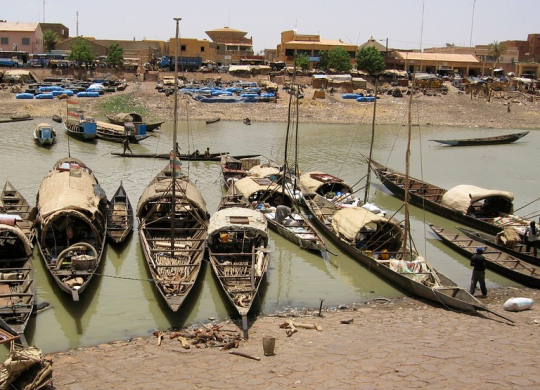Work and employment in Mali. Applying for a work visa
Table of contents

Mali is a permanent member of the 25 clubs of the poorest countries in the world. It often ranks second at the end of the list reflecting the well-being of world states. But what other fate can befall a region that has survived the military colonial expansion of France, and several military coups and which still suffers from instability due to civil conflicts and French intervention.
Employment in Mali is usually not interesting even to neighbouring African countries that also suffer from poverty. What can be said about more developed world economies.
Work in Mali
Since ancient times, the main occupations of the modern Mali people have been farming, salt mining, and trade. Not much has changed today, except that salt production got dormant. Thus Malians continue to work in the agricultural sector (growing cotton, rice, corn, tobacco, etc.), and cattle breeding (breeding camels, etc.).
It is worth noting that some hundred years ago, Mali was among the world’s richest countries because of gold and diamond mining. But the reserves got exhausted, and the profits — were distributed not in favor of the state. Even today mining corporations mercilessly exploit the Malian deposits and their workers without any obvious benefit to the people and country.
So the main driver of Mali's economy. It employs 80% of the country's population from the employed share, which is approximately 63%. Other sectors are poorly developed. Employees of any enterprise or firm often receive just over a dollar for a day of real work.
In addition to an underdeveloped economy, inappropriate distribution of public revenues, poverty, and high unemployment among the population, Mali also suffers from:
• sexism, misogyny, and almost zero bases for protecting women's rights;
• the absence of laws that would prohibit and punish harassment in the workplace and abuse of work authority;
• the absence of laws that would protect people with physical or psychological nuances;
These aspects are widely used by corporate bosses, which results in harassment, abuse of power and the exploitation of vulnerable workers in Mali are quite common.
Employment in Mali
The employment algorithm in this backward agrarian state is quite typical. A foreigner must find an open vacancy and respond to it. If he/she passes the interview successfully, it will be necessary to conclude an employment contract and, upon it, receive a work invitation, work permit, and visa.
The contract must obligatory state the following aspects:
• working hours and schedule;
• salary level stated in West African francs (CFA);
• amounts and time of benefits;
• conditions of quitting and termination of the contract;
Important: before responding to a job offer or signing a contract, familiarize yourself with the Labour Code of Mali. Many firms tend to deviate from the statutory working hours and other important issues.
Mali work visa
Those who do want to. will have to apply for a work visa. The package of documents is standard: questionnaire, identity card, photo cards, and invitation from the company. The complete list of required papers can be requested from the local representative office of the country.
Also, a work visa in Mali requires a certificate of registration of the company in which the foreigner is going to work and a certificate of payment of income tax.
All materials and articles are owned by VisitWorld.Today and are protected by international intellectual property regulations. When using materials, approval from VisitWorld.Today is required.